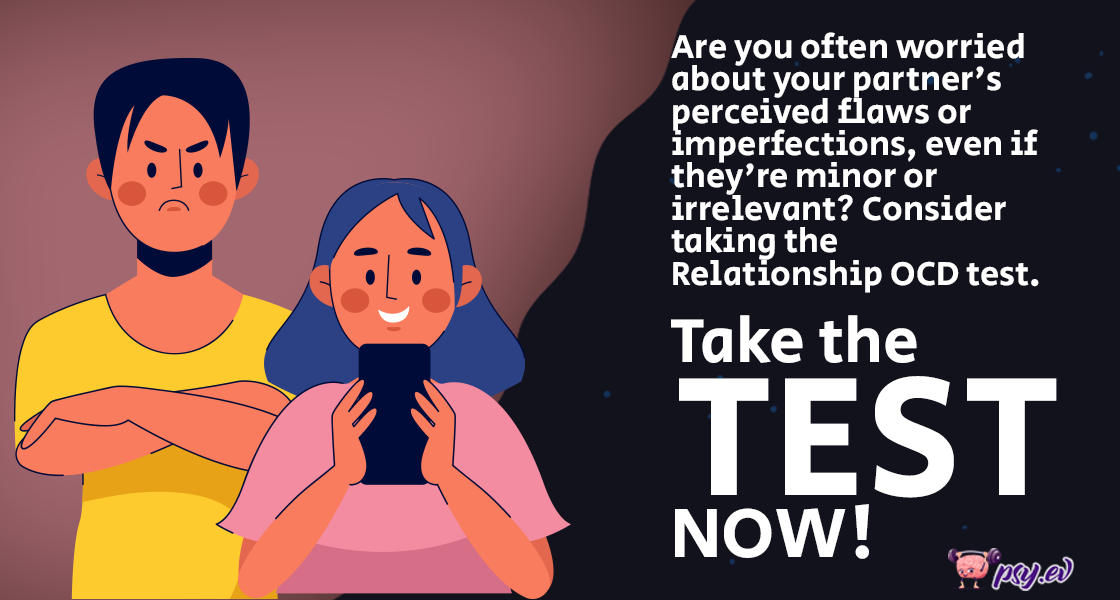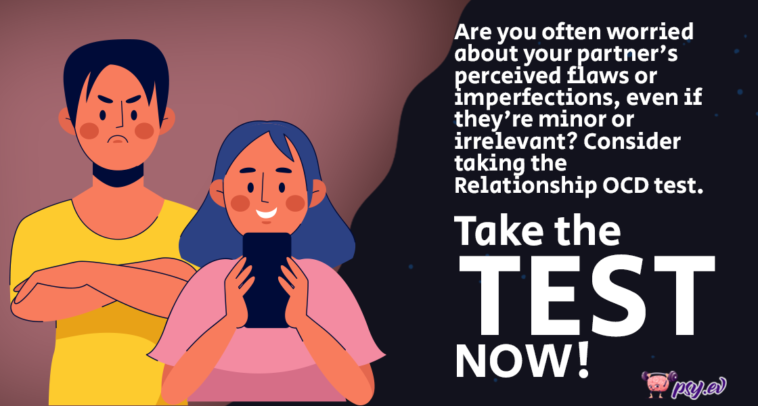Finding out if you have ROCD could make it easier for you to get support and stop having these bothersome thoughts. Consider completing our quick relationship OCD test. This test will assist you in determining whether the symptoms you have been exhibiting are linked to ROCD.
You can take the test result to a mental health specialist for further assistance. A therapist will assist you in determining whether your problems might be symptoms of another mental health illness and how to cope with them.
Causes and Signs of Relationship OCD
ROCD is a kind of OCD in which a person develops compulsions and obsessions. It can manifest as symptoms such as an obsession with the idea that your partner has a problem, persistent doubts about your spouse's sincerity, and a need for confirmation that your relationship is good.
ROCD can strain a relationship and the people involved. Some relationships may not survive ROCD. However, treating the symptoms regardless of how they may affect the relationship is important.
Possible causes of ROCD include having trouble creating close connections, having an abusive or traumatic past, loss of a close relative, alterations in the activity of certain brain regions, relationship anxiety, and low self-esteem.
Individuals with relationship OCD frequently suffer from relationship anxiety to varied degrees. For those with ROCD, the signs include constantly analyzing themselves, their spouse, or their relationship.
ROCD can appear in two ways: partner-focused ROCD or relationship-focused ROCD. Concerns and uncertainties regarding your feelings towards your spouse, how you believe your partner feels towards you, and judging your relationship are the main symptoms.
Next Step
Even in good relationships, it is common to have some reservations. However, there could be more to those thoughts than just relationship discontent if they are intense, compulsive, and disruptive to your functioning.
Speak with a mental health expert about a ROCD diagnosis and treatment plan if you see yourself participating in obsessive and compulsive behavior around your relationship that is upsetting you. You can include your significant other to make the process easier for you.
Even if the relationship ends, ROCD treatment can still be beneficial since individuals can make decisions based on their experiences.
One of the most common ROCD treatments is cognitive behavioral therapy (CBT), often used to address relationship OCD. With CBT, you will learn to identify unhelpful thought patterns and behaviors and gradually replace them with better, more productive ones.
On the other hand, ROCD is also treated using exposure response prevention treatment (ERP), a cognitive behavioral therapy (CBT). ERP is repeatedly exposing oneself to the cause of anxiety and intensifying it while resisting the impulse to engage in compensating or neutralizing behaviors.
Repeated exposure to the trigger trains the brain to identify it as unreasonable, frequently lessens obsessions, and, as a result, the desire to carry out compulsions. Moreover, ROCD can also be treated with medication.
There are therapies for relationship OCD that can assist you and your spouse in coping. By learning more about the condition, you can better understand why you suffer intrusive thoughts and compulsions connected to your relationship. You may learn to control your symptoms and create a more stable relationship by seeking counseling.


